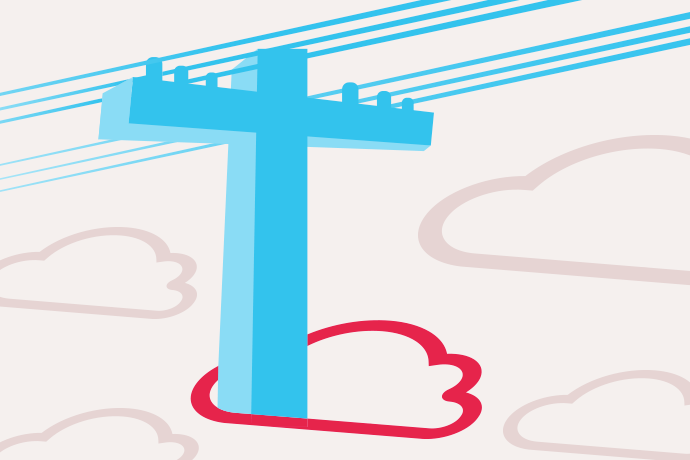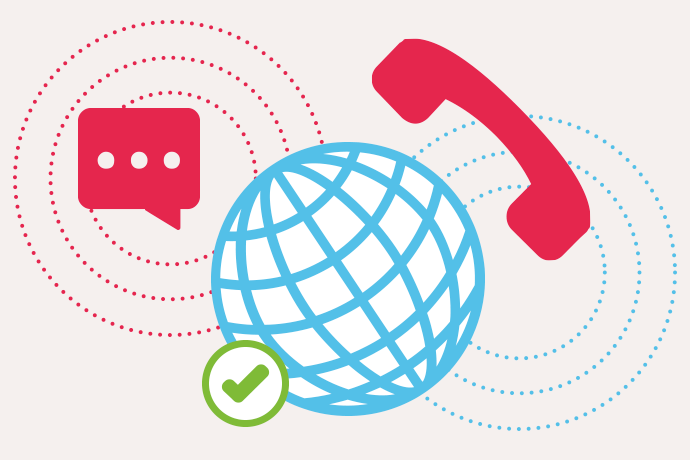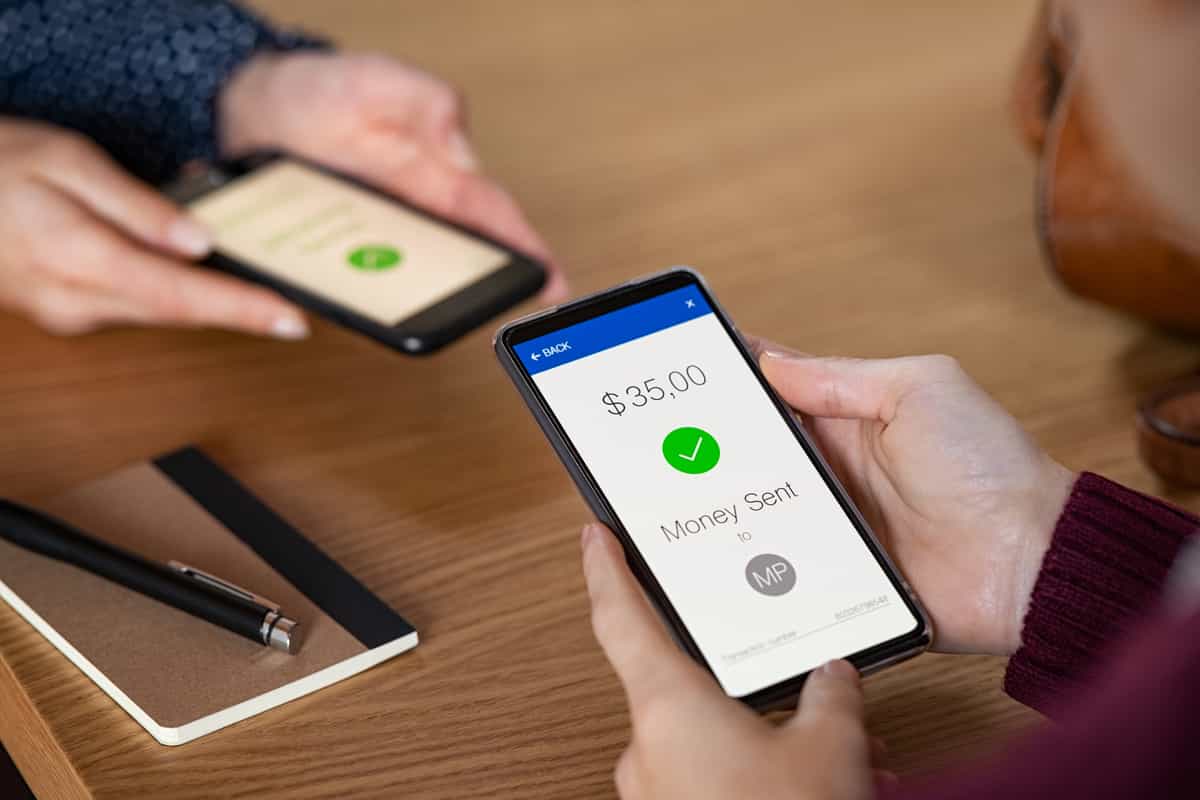Cart Total
$0.00
-
Your shopping cart is empty
Loading

Hello! Log in Your Account
New customer? Start here


|
8 min read
Contents
Quick Summary
Every business needs a phone system. Discover the evolution of business phone systems and find out which option works best for you, from PSTN landlines through to SIP trunks and PBX solutions.

A business needs a business phone system. Communication, either within the company or between your staff and your clients/customers, is crucial to business success. Make it difficult for your customers to get through to you for support, enquiries or purchases and they’ll soon be spending their money with someone else.
Therefore, the type of phone system you decide to go with is important. Get it wrong and you could be stuck in an expensive contract for the next few years . What’s more, if you choose the wrong service, it will underdeliver on the features that you need and over-deliver on those that you don’t.
To help out, we’ll discuss the history of the business phone system and the options you have when it comes to them.
Originally, the PSTN consisted entirely of analogue telephone systems making use of fixed copper phone lines.
A traditional PSTN phone system necessitates hardwiring one phone to one line, meaning that each phone is capable of making calls from, and receiving calls to, this line and this line only.
Is the PSTN the same as a Landline? The telephone network initially consisted of copper wires running between over-land telegraph poles, rather than under the sea, hence the term 'landline'. So when when we talk about the Public Switched Telephone Network, we are talking about this network of connected overground wires.
The PSTN still exists today, although in a somewhat different form. Various technological advancements have been integrated into the PSTN, the first of which was modulation, used to digitise the analogue signal sent across the copper lines.
This digitisation was made possible with the advent of the ISDN. A successor to dial-up internet, ISDN still makes use of the existing copper line infrastructure, but allows for more concurrent incoming and outgoing calls. As such, ISDN represented an upgrade to existing infrastructure.

Traditional copper phone lines and, therefore, both ISDN and PSTN are soon to be phased out in the UK. Dubbed the ‘BT Switch Off’, this move is happening in 2025 as BT pushes for the adoption of digital Voice over IP (VoIP) services.
In conjunction with this plan, traditional phone system solutions are already being phased out from the market, meaning you soon won’t be able to purchase them at all. By September 2023, no new PSTN lines will be available to buy in the UK.
The PBX, or Private Branch Exchange, was a phone line switchboard housed on private business premises. Rather than a single, central telephone exchange that routed telephone calls country-wide, businesses now had their own private switching system in-house.
This private switchboard allowed for more intelligent routing, including multiple lines being linked to a single phone. This allowed a single member like a receptionist to field calls coming into many different telephone lines.

Many businesses still make use of an on-site PBX. Calls via one of these on-premise PBXs are still routed through traditional copper or ISDN lines and these lines have a limit to the number of calls that can be placed concurrently.
As businesses grew and communication by phone became more popular and more crucial to doing business, the limitations represented by copper lines became a barrier to doing business. A solution was needed.
This is where SIP trunks come in.
SIP trunks are like an ‘adaptor’ for an on-site PBX, upgrading it to be capable of routing calls via the internet. Transmitting voice data over the internet is known as ‘VoIP’, or ‘Voice over IP’.
By routing calls via the internet, using either your internet connection or data, SIP trunks bypass the physical limitations inherent in ISDN and copper phone lines. This represents an ‘easy’ way to expand a physical phone system past its usual physical limitations.
SIP trunks also drastically reduce the call costs between different SIP users on the same trunk. In short, this makes intra-company calls very low cost or free.
SIP trunks do not, however, free a business from the headaches and costs inherent with having an on-site PBX. Most large businesses are still reluctant to replace an existing on-premise system. For this reason, SIP trunks are still widely used today by businesses with an on-site PBX.
For young companies, it makes no sense to install an antiquated solution like an in-house PBX. A phone system that is managed on-site is inherently cumbersome. With expensive installation and maintenance costs and poor scalability, they no longer represent an attractive option to most businesses; especially when there are more modern alternatives available.
Often larger, older companies opt for the SIP trunk solution because they are reluctant to get rid of the physical PBX hardware that has served them for so long. By leveraging modern technology, though, services now exist that present a cloud-based business VoIP offering.
Cloud phone systems, or cloud PBX technology, entails hosting the PBX virtually online, rather than with physical hardware on-site. These ‘hosted PBX’ solutions stand out as an obvious choice for young companies, as well as those older companies looking to leverage the powerful features these services have to offer.
By routing calls via a cloud-hosted platform, the need for on-site hardware is completely removed. As a result, the business benefits from significant cost savings as the expensive set up and maintenance fees disappear as well.

What’s more, the hosted-nature of the PBX/VoIP service leads to a multitude of other key advantages:
1) Better security
Instead of all the data being stored locally, it is stored with the provider, who takes care of storage segregation. Since customers are discerning when it comes to security, there is competition between providers to offer the most secure service, which drives more secure systems of data protection. Look for a provider with accreditations like ISO 27001 and Cyber Essentials, for safety in knowing your data is secure.
2) Unintrusive, scheduled downtime.
The cloud-based platform is maintained by the provider. Therefore, any downtime is scheduled for those times of the day when there will be minimal service disruption (e.g. the middle of the night). Conversely, maintenance to an on-site PBX will need to occur during the day when the building is occupied, since technicians need to be allowed in and supervised whilst they complete the necessary work.
3) Service continuity.
Hosted PBX services are required to have stringent business continuity plans. If they lose power, they have contingencies in place so that their service can continue to operate (e.g. backup generators).
Contingency plans must exist for every eventuality. By meeting such requirements, the service becomes certified as having met a particular standard.
You can check this with governing bodies or the service themselves (they will usually advertise it front and centre). E.G. Yay.com is an ISO accredited G-Cloud supplier.
This takes the onus off of the business to have sophisticated redundancy policies in place themselves.
4) VoIP Apps
Rather than need to purchase dedicated hardware phones for use with a service, staff can use their own devices to make and receive business calls with VoIP apps (softphones), introducing yet more cost savings and freeing businesses from the tyranny of vendor lock-in prevalent with PBX systems.
With the advent of Hosted VoIP, full development teams have become the norm in the offices of modern-day telecommunications providers.
Once a VoIP app has been developed, the logical software progression is for chat features, video conferencing and other advanced features to be offered as part of the package.
This continuous adding of communication features represents the evolution from a voice-only means of communication to one that combines the best of all kinds of communication. Instant messaging has been popular since the early 2000s, whilst video calling via Skype, Apple’s Facetime and other services is possible on any smartphone or laptop. Specialist hardware need not even be purchased since all smartphones and most laptops ship with high-quality front-facing cameras.
The combination of these communication methods on a single platform is known as Unified Communications. Unified Cloud Communications represents the next generation of business communications.
Join Yay.com in stepping into the future of business communications and see what our customers have to say about us by looking over our phone system reviews.


Explore how Skype's end-of-life announcement presents an opportunity for small businesses to upgrade their Skype number to a VoIP phone system.
Posted March 10 2025 | 6 min

Everything you need to consider when moving offices, from hardware to call quality.
Posted January 16 2025 | 6 min

Corded headsets vs wireless headsets? Learn about the key considerations when purchasing a VoIP headset for your VoIP phone system and softphone apps.
Revised December 3 2024 | 9 min

VoIP is incredibly well suited to being the phone system for businesses of all sizes. Large businesses in particular can benefit from great scalability, bulk-deployment options and more.
Revised August 21 2024 | 8 min

Examining the differences between VoIP and PSTN communications solutions and VoIP benefits.
Posted July 16 2024 | 5 min

Get your business up to speed before the PSTN and ISDN switch off in 2027. Discover what digital VoIP technologies will mean for business landlines in the future.
Revised July 15 2024 | 6 min

With the upcoming switch from PSTN to VoIP, we look at what processes other countries have taken when they decided to migrate their own copper line networks.
Posted August 1 2023 | 6 min

VoIP apps or VoIP desk phones, which is better and why? We discuss how VoIP desk phones could be obsolete with the availability of greater and more powerful VoIP apps .
Revised November 2 2022 | 7 min

Cloud VoIP phone systems offer key advantages for businesses. Here are 13 of VoIP's key benefits that have helped to drive the adoption of business VoIP.
Revised May 10 2022 | 12 min

How cost-effective is VoIP? Is VoIP secure? How fast does my Internet need to be? We answer these questions and more.
Posted January 11 2022 | 5 min

VoIP won't work without the internet, but that doesn't mean you need a wired broadband connection. A supplemental mobile cellular data network (4G, 5G, LTE) can make VoIP calls possible even if broadband is unavailable.
Posted January 11 2022 | 5 min

Offer great customer service, but do so efficiently. Automate aspects of your phone system and provide self-service information to free staff resources.
Posted September 24 2021 | 4 min

Call recording is a feature of good VoIP phone systems that allows customers to record their business calls, then playback and download them.
Posted September 17 2021 | 6 min

Large corporations have requirements that surpass the capabilities of most phone systems. With Yay.com build your ideal business phone system effortlessly.
Revised August 25 2021 | 5 min

A good business phone system will help you run day-to-day operations more efficiently and effectively. Here are 5 ways yours can improve customer satisfaction.
Posted August 19 2021 | 4 min

Features like call parking and shortcodes can boost the efficiency of your business phone system, saving your teams time.
Posted August 18 2021 | 6 min

Learn what VoIP 'QoS' or Quality of Service is and why your business network needs it configured for the best VoIP experience.
Posted March 9 2021 | 3 min

With Yay.com's free VoIP trial you can try business VoIP for free for fourteen days - no credit card required. Enjoy all of our powerful business phone system features at no cost.
Posted December 3 2020 | 4 min

Business VoIP makes it possible to work from anywhere. We'll get you up and running for working from home, no matter whether you prefer VoIP desk phones or VoIP apps.
Posted November 12 2020 | 3 min